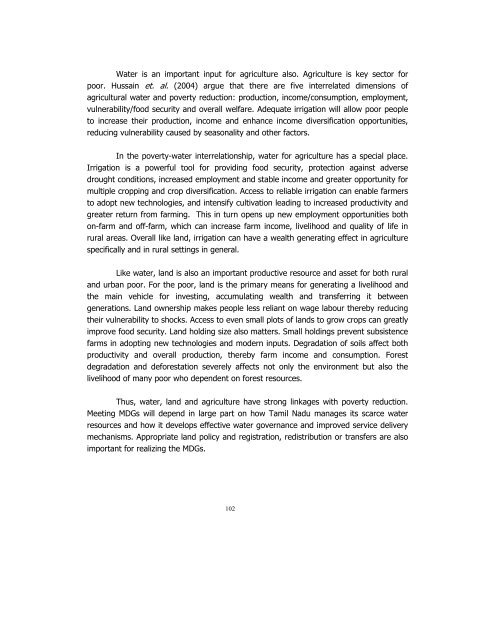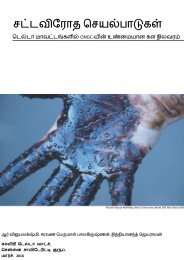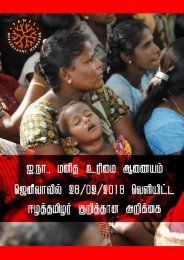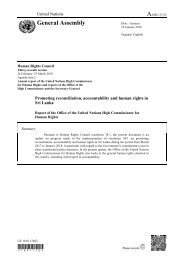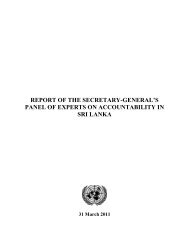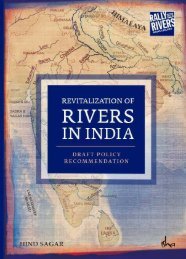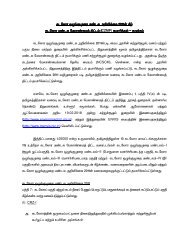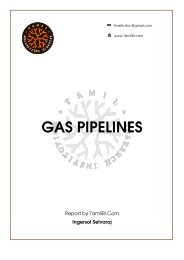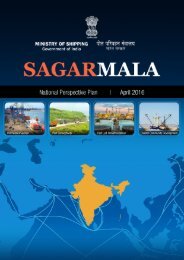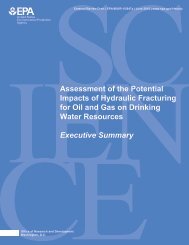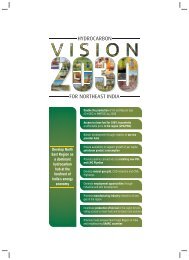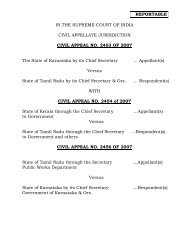POVERTY REDUCTION STRATEGY TN
Create successful ePaper yourself
Turn your PDF publications into a flip-book with our unique Google optimized e-Paper software.
Water is an important input for agriculture also. Agriculture is key sector for<br />
poor. Hussain et. al. (2004) argue that there are five interrelated dimensions of<br />
agricultural water and poverty reduction: production, income/consumption, employment,<br />
vulnerability/food security and overall welfare. Adequate irrigation will allow poor people<br />
to increase their production, income and enhance income diversification opportunities,<br />
reducing vulnerability caused by seasonality and other factors.<br />
In the poverty-water interrelationship, water for agriculture has a special place.<br />
Irrigation is a powerful tool for providing food security, protection against adverse<br />
drought conditions, increased employment and stable income and greater opportunity for<br />
multiple cropping and crop diversification. Access to reliable irrigation can enable farmers<br />
to adopt new technologies, and intensify cultivation leading to increased productivity and<br />
greater return from farming. This in turn opens up new employment opportunities both<br />
on-farm and off-farm, which can increase farm income, livelihood and quality of life in<br />
rural areas. Overall like land, irrigation can have a wealth generating effect in agriculture<br />
specifically and in rural settings in general.<br />
Like water, land is also an important productive resource and asset for both rural<br />
and urban poor. For the poor, land is the primary means for generating a livelihood and<br />
the main vehicle for investing, accumulating wealth and transferring it between<br />
generations. Land ownership makes people less reliant on wage labour thereby reducing<br />
their vulnerability to shocks. Access to even small plots of lands to grow crops can greatly<br />
improve food security. Land holding size also matters. Small holdings prevent subsistence<br />
farms in adopting new technologies and modern inputs. Degradation of soils affect both<br />
productivity and overall production, thereby farm income and consumption. Forest<br />
degradation and deforestation severely affects not only the environment but also the<br />
livelihood of many poor who dependent on forest resources.<br />
Thus, water, land and agriculture have strong linkages with poverty reduction.<br />
Meeting MDGs will depend in large part on how Tamil Nadu manages its scarce water<br />
resources and how it develops effective water governance and improved service delivery<br />
mechanisms. Appropriate land policy and registration, redistribution or transfers are also<br />
important for realizing the MDGs.<br />
102


